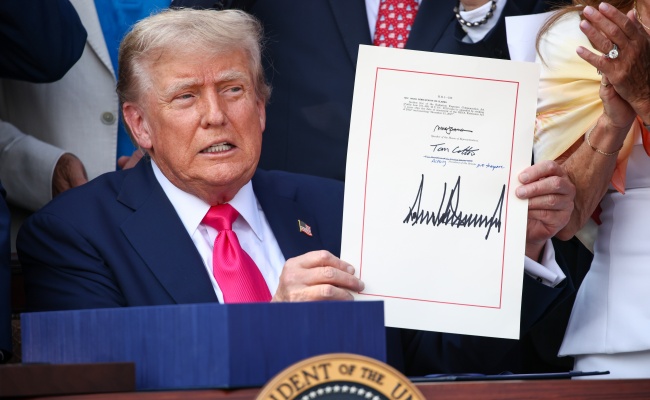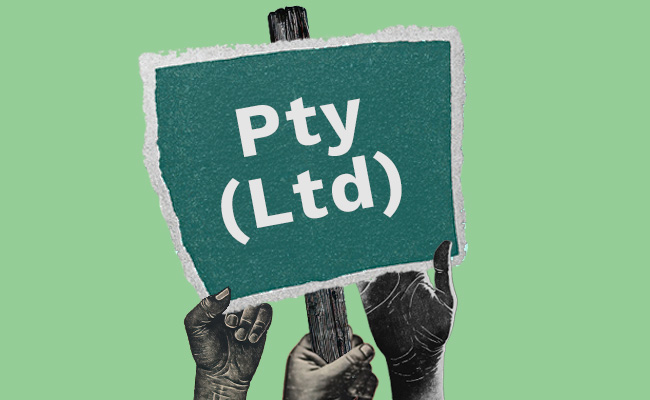One doesn’t like to be cynical. Actually, scrub that. One does like to be cynical. Being sceptical, now there’s the difference.
In the balance between delivering the bad news and telling the truth about what politicians say rather than what they do, it’s absolutely crucial to be sceptical. But as far as cynicism goes, a great illustration is US President Donald Trump’s “Big Beautiful Bill”, which has just miraculously passed through the tortuous US legislative process.
The legislation doesn’t affect us in South Africa directly, but it illustrates the enormous utility of the Trump presidency. If you seek answers into how economics works, what is sensible, and what a grand superpower should do, Trump invariably provides the answer. That is: do the opposite.
And this is a lesson from which us puny citizens of a medium-sized struggling state on the southern tip of Africa might usefully learn, because actually the similarities between the Trump administration and South Africa’s government are much larger than either side might care to acknowledge.
Here is the rub: the legislation will massively increase the US national debt. Trump has transformed the Republican Party from an institution that was underpinned by government-shrinking Reaganism to the very thing former president Ronald Reagan would have despised: tax-and-spend populism. The key to this process is, well, cynicism gone wildly wrong.
During his first term, Trump proposed a set of deep tax cuts that would mainly benefit the rich, but balmed the inevitable wound to the national debt by setting an expiry date timed to begin when his putative second term would have ended. The argument made at the time was that if the tax cuts didn’t work by ameliorating the increase to national debt by virtue of a growing economy and consequential higher tax income, well then, the tax cuts would end.
But as fate has worked out, Trump lost the following election to Democrat Joe Biden, who, equally cynically, maintained the tax cuts as envisaged. What that meant is that the person who was forced to catch the hot potato with the expiry of the tax cuts was Trump himself. Funny old thing, fate.
The debt mountain
So what Trump has now done, essentially, in the “Big Beautiful Bill” is to make the tax cuts permanent. But that’s not the cynical thing! The cynical thing is the argument of the Republicans that they are not increasing the national debt significantly. And how do they get to that result? Well, if you discard the fact that the tax cuts were meant to expire, the bill does not meaningfully increase national spending.
Here are the numbers. Previously, corporate tax was reduced from 35% to 21%. The top marginal rate of personal tax is now 37% instead of 39.6%. The BBB makes that permanent. Everybody loves tax cuts, so no harm done there.
The problem, however, is that economic growth – notionally consequent on these cuts – has not happened to the extent required to keep national debt under control.
The result – which the US’s own independent Congressional Budget Office (CBO) has calculated – is that the bill will add some $4.5-trillion to American debt over the coming decade. The CBO expects America to run an average annual fiscal deficit of 5.8% of GDP over the coming decade; the BBB would increase that by a further 1.25 percentage points. America would end up with public debt of more than 120% of GDP.
And who does a 5.8% budget deficit remind you of? Well, us, for a start. Actually, not quite. South Africa’s budget deficit stands at approximately 4.8 % of GDP for the fiscal year ending March 2026. But potatoes, potahtoes. Anything over 3% is just fiscally irresponsible – it’s that simple.
The bill does envisage spending cuts, but here again, cynicism rears its ugly head. Not unlike South Africa, many of the cuts envisaged are in the wrong place. CBO calculations put the poorest 30% at worse off than before, while the richest 10% may see their income after taxes and transfers increase by 2.3%.
South Africa’s political class despises Trump, not necessarily unjustly. Yet they are doing the same thing: pretending to care about Everyman, while shafting him. If only they would use his example as something to reject, rather than to follow.
Top image: US President Donald Trump signs the One, Big Beautiful Act into law on July 4. Picture: Samuel Corum/Getty Images.
Sign up to Currency’s weekly newsletters to receive your own bulletin of weekday news and weekend treats. Register here.








